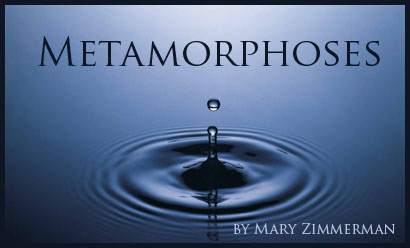




Major Themes in this Production
Like the poem from which it is derived, this play explores a wealth of themes and motifs. Any given production of the play will inevitably focus on some of these themes more than others. During conceptual meetings for the Appalachian State production, the director, designers, and dramaturg developed a particular focus on the following four themes.
Order and Chaos
In Ancient Greek cosmology, Chaos was the first divine being. The first rulers of the universe sprang from this Chaos. After a series of brutal coups, a later generation of immortals--including Zeus, Hades, Poseidon, and Hera--wrested control of the universe from their forebears. These new rulers became known as the Olympian gods because they ruled from Mount Olympus. The Olympians moved the world further away from chaos toward order, but, as the myths show, their mercurial temperaments insured that the world was still an unpredictable and often perilous place for the newly-birthed race of humans. Throughout the stories in Metamorphoses, humans make their way in a world where chaos and order maintain a fragile balance.
The Elements
Like many ancient cultures, the Greeks recognized a series of elements that comprised the world--in fact, the original divine being, Chaos, was said to be made of the four elements. They believed that the balance of these four elements helped keep the universe and human body in order. This play is laced with references to and images of Air, Fire, Water, and Earth and these elements have become a key part of the concept for this production.
Bodies
In its very first line, this play announces that it is a meditation on the human body. Throughout the play, we see bodies that are beautiful, grotesque, frail, strong, damaged, and sensual. The mortality of the human body is the primary thing that distinguishes it from the divine bodies of the gods and, indeed, is the most fundamental fact of human existence.
Stories and Storytelling
Because humans are mortal and each individual’s memory is finite, we have found it necessary as a species to pass memories from generation to generation. Some of these memories are transmitted as pragmatic how-to lessons, but others are passed in the form of aesthetically-engaging stories. While these stories may not be as practical as, say, a fishing lesson, they are essential. Stories can teach us many things, such as where we came from, what our community values, why we behave as we do, and what human beings from different places and eras have in common. They also help us find words to describe what we experience and how we feel. Ovid first told these stories in his poem almost exactly 2000 years ago—and they were already centuries old even then. Why do they still resonate with us today? Perhaps because, as a species, we still need stories to help us understand our complex selves and our complex world.



